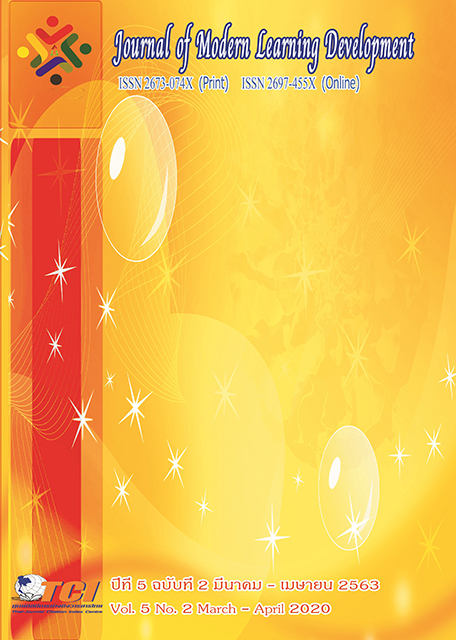Strategies for Teaching Buddhist Ethics through the Literature of Synshai
Main Article Content
Abstract
This article aims to present ethical principles of practicein Synshai literature four important ethical principles: 1) precepts the principles of conduct in the normal happy life; 2) gratitude which is to know the benefactor and to give them in return; 3) loving kindness which is the dhamma of love and good wishes to the others and all animals; 4) Ten Dhammas of the King, which is a principle of the king who acts as a ruler by helping people, society and nation to happiness and peace.
Article Details
References
ปรีชา พิณทอง. (2524). สังข์ศิลป์ชัย. อุบลราชธานี: โรงพิมพ์ศิริธรรม
พระธรรมปิฎก (ป.อ. ปยุตโต). (2537). ทำอย่างไรจึงจะหายโกรธ. (พิมพ์ครั้งที่ 11). กรุงเทพมหานคร: บริษัท สหธรรมิก จำกัด.
พระธรรมปิฎก (ป.อ. ปยุตโต). (2537). คนไทยกับป่า. กรุงเทพมหานคร: มูลนิธิพุทธธรรม.
พจนานุกรมฉบับราชบัณฑิยสถาน. (2538). กรุงเทพมหานคร: อักษรเจริญทัศน์.
พระไตรปิฎกภาษาไทย (2539). พระไตรปิฎกภาษไทย ฉบับมหาจุฬาลงกรณราชวิทยาลัย. กรุงเทพมหานคร: โรงพิมพ์มหาจุฬาลงกรณราชวิทยาลัย.
พระมหาบัญชา สุสมฺปนฺโน (ผาติวโรดม). (2549). การศึกษาวิเคราะห์หลักเมตตาธรรมในคัมภีร์พระพุทธศาสนาเถรวาทกับพระคัมภีร์คริสตธรรม. วิทยานิพนธ์พุทธศาสตรมหาบัณฑิต. บัณฑิตมหาวิทยาลัย: มหาวิทยาลัยมหาจุฬาลงกรณราชวิทยาลัย.
พุทธทาสภิกขุ. (2549). ทศพิธราชธรรม. กรุงเทพมหานคร: สุขภาพใจ.
มั่น จงเรียน. (มปป.). สังข์ศิลป์ชัย. กรุงเทพมหานคร: โรงพิมพ์ทักอักษร.
โสวิทย์ บำรุงภักดิ์ และคณะ. (2551). พฤติกรรมความเชื่อของประชาชนในวรรณกรรมเรื่องสังข์ศิลป์ชัย. สถาบันวิจัยพุทธศาสตร์: มหาวิทยาลัยมหาจุฬาลงกรณราชวิทยาลัย.


